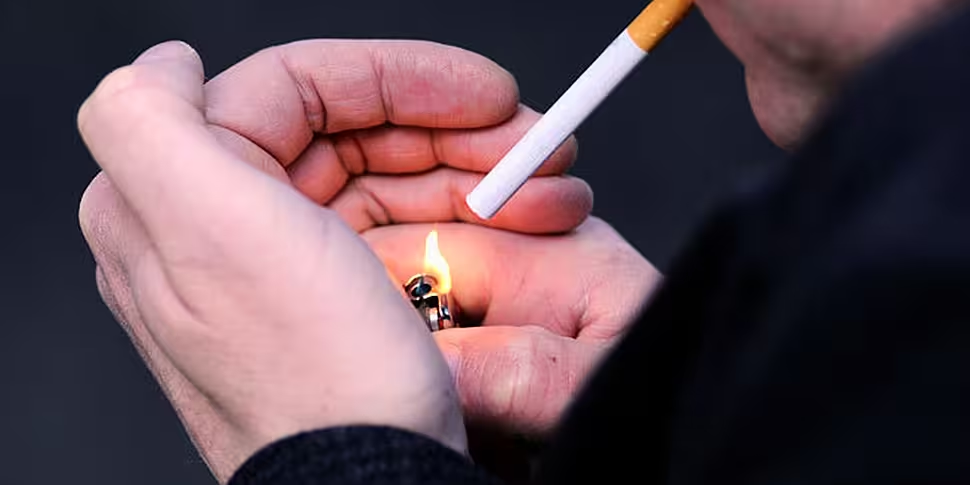The Irish Cancer Society (ICS) is urging the Government to drastically increase the cost of cigarettes here.
In a pledge to mark World Cancer Day, it wants Ireland to follow the example of Australia - which has made a commitment to raise the price of a pack of cigarettes to AUS$40 (€28.47) by 2020.
Cigarettes cost almost AUS$25 (€17.60) per packet in Australia currently.
The Society is highlighting that one in four cancer deaths are caused by smoking and that high tobacco taxes are one of the most effective ways of reducing the number of people who smoke.
The Government's policy on smoking, 'Tobacco Free Ireland', outlines the goal of Ireland being tobacco-free by 2025.
"Keeping the price of cigarettes high and out of reach of young potential smokers, is a key element of the strategy to reduce the smoking rate in Ireland", the ICS say.
Despite the fact a pack of 20 cigarettes is now over €11, the ICS say the Government has to make it clear to smokers that the price of cigarettes is only going in one direction and that support is available to help them to quit.
Donal Buggy, head of services and advocacy at the ICS, said: "We need to send a strong signal that the Government is serious about reaching its target of a Tobacco Free Ireland by 2025.
"To do this we need to follow the example of Australia, where significant spikes in excise duty, next to policies such as plain packaging, have seen a dramatic fall in the smoking rate to 12.8% by the middle of 2016. In Ireland, the smoking rate is just under 20%".
A recent report commissioned by the Department of Health on the economic cost of smoking in Ireland highlighted that cost of tobacco to Irish society in 2013, the latest available data, was €590m more than the Government took in through excise receipts.
Criticism
But pro-smoking campaigners have slammed the call by the ICS as an "attack on the poor and the elderly"
John Mallon, spokesman for Forest Ireland, said: "Raising taxes on tobacco is an outrageous attack on the poor and the elderly. It will fuel illicit trade and drive law-abiding citizens into the hands of criminal gangs.
"Tobacco is a legal product and consumers shouldn't be punished or treated like lepers for exercising their right to buy or consume it.
"The ICS is behaving like the worst kind of schoolyard bully.
"Instead of encouraging people to stop smoking through education they want to force people to quit using punitive taxation and other coercive measures.
"It's very easy for senior executives with their high salaries to call for tax increases. If they have any empathy for ordinary people they should show a bit more compassion for those who enjoy smoking and are less well off."
Invasive cancer cases set to double
Mike Daube, professor of health policy at Curtin University, Western Australia recently told a Dublin conference: "We are described by the tobacco industry as 'the darkest market in the world'. Ireland and Australia have taken similar comprehensive approaches to reduce smoking, which remains our largest preventable cause of death and disease."
While Health Minister Simon Harris has highlighted the progress which has already been made in preventing cancers - and encouraged people to avail of the resources and supports available.
Minister Harris said: "Under our Healthy Ireland initiative we aim to improve the health and well-being of everyone living in Ireland, including people living with and beyond cancer.
"We are also increasing our focus on prevention which is critical to reducing the risk of many cancers.
"It is essential that our services meet the needs of people, from diagnosis and treatment to psycho-social support post-treatment. I am delighted to see a focus on improving the quality of life of cancer survivors as part of World Cancer Day."
The Department of Health say approximately 20,000 people are diagnosed with invasive cancer in Ireland every year.
The number of new cases is rising annually, and is projected to double by 2040.
The percentage of deaths in Ireland attributable to cancer has risen from 20% in the 1980s to over 30% at present.
While the World Health Organisation (WHO) estimates that 30% to 40% of cancers are preventable.









